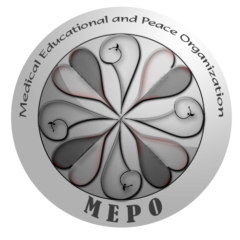The Planes of Development and Their Corresponding Sensitivities
*These were the simplified notes used in the training of Afghan teachers. For more detailed information about the planes of development, please go to the AMI website: http://www.montessori-ami.org/
|
Stage 1: Age 0 – 6 years
|
Stage 2: Age 6 – 12
|
Stage 3: Age 12-18
|
Stage 4: Age 18-24
|
|
Sensory
- Is exploring the physical world through the senses.
- Needs to touch, smell, hear, taste, feel.
- Only things that can be sensed are real to the children.
- Needs to work with the hands. The hands make the brain develop.
Language
- Nature makes the child naturally learn language. They want to know the name of everything, even long words. They need to be talked to, to learn words and language.
Order
- The young child is very interested in small things. She wants to make things very neat and organized.
- This is the beginning of math in the mind. It is preparation for math. So it is important to let the child organize things, such as stacking blocks, folding cloths, etc.
- When doing these things, the child is practicing with his body. We must let him do this work, even if he repeats it over and over.
Physical
- The child is just getting to know her body. She needs to move around a lot to become more coordinated and strong.
|
Imagination
- As the child gets older, he can begin to imagine things even if he can’t touch them.
- This means she can learn about things like dinosaurs, other cultures, the solar system, etc.
- This age child loves stories, and learns very well from stories.
Human culture
- The brain of this age child is very strong. He can learn easily and a lot, and is like a sponge. He is very curious about the world.
- This is when school begins because the children are ready to go out into the world.
Moral
- This age child is extremely sensitive to fairness, justice, and right and wrong. These questions need to be discussed with them when it arises.
- They are very aware of rules, and it is important that they are involved in making rules, not just having to follow them.
|
Physical
- This age child is undergoing many physical changes in the shift to adulthood.
- This can be confusing sometimes for the child.
- They feel they are between being a child and being an adult.
- They need to have a connection to the earth to keep them calmer, such as gardening, working with animals or on a farm.
Financial
- This age child is very interested in having money and being more independent.
- They especially want to make their own money, not just be given money.
- They should be given opportunities to work and earn their own money.
|
Spiritual
- This person is no longer a child. But now their development focuses on the question of the purpose of their life.
- This is a time for them to explore what they are passionate about, what they want to do in their life.
- It is also what kind of person they want to be.
Temptations
This age young adult will face temptations:
- Laziness (being lazy or working hard)
- Power (using personal power for good or bad)
- Possessions (greed)
|
| Independence from the parents (mother) – the child can walk, communicate, feed itself, etc. |
Independence from the home – the child is ready to begin exploring the wider world outside the home, and also in the imagination |
Independence from the family – the child is preparing to become a working adult, financially independent |
Adulthood
|
